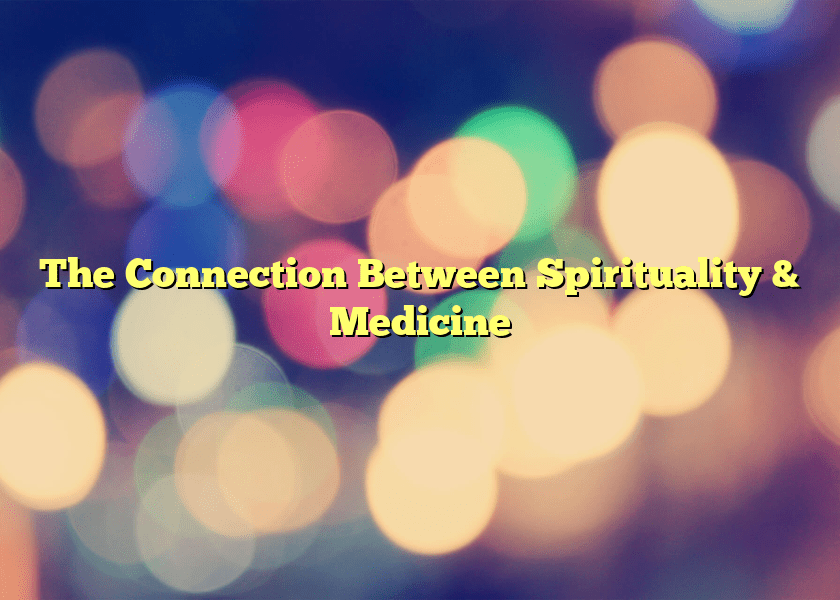The Connection Between Spirituality & Medicine
When a person is threatened with physical complications, there are two main aspects that he will seek refuge in- medicine and spirituality. Despite the recent discussions and debates surrounding the reunion of spirituality and medicine, there is no doubt that a lot of patients recognize their faith as a great influence in their physical health. Thus, when a person feels ill or experiences health complications, they face it by trying to understand their illness in the medical or scientific sense and by turning into their faith in order to cope with their emotions of despair, depression, loneliness and suffering.
Although spirituality can be connected with religion, it is not the sole definition of it. Spirituality is defined as a person’s own system of beliefs focused towards the intangible, and knowing that there is a greater being who really knows the meaning of the person’s life. Members of the health care industry such as nurses and physicians had observed that their patient’s spirituality have a great influence in their experiences of dealing with their illnesses.
During the study of medicine, medical students are taught how to conduct a doctor-patient interview. The first part of this interview includes taking the details of the patient’s medical history as well as personal details which are related to their spirituality and religious beliefs. Although most students actually feel that they are being intrusive while asking these questions, these are actually valid as such factors actually allow the patient to open up and discuss his beliefs to the health care professional. It also lets them reflect regarding their personal life and provide them with reassurance and comfort, knowing that they are not alone in their present struggle. Having the opportunity to reflect about one’s self also gives the patient the chance to plan about his next actions given the current condition that he is in.
Nowadays, the medical field has constructed a way to assist health care professionals in incorporating spiritual history into their interview. Brown University uses the HOPE module which is used to assess the patient by asking him questions through the mnemonics of HOPE. H is where the patient gets hope, love, connection, and strength, and O is the patient’s part or role in an organized group of spiritual or religious people. On the other hand, P is the patient’s personal beliefs when it comes to spirituality and how does he practice it, while E would be how he views the effects of medical care and any issues that he is currently facing.
These questions make the patient ponder about his personal life without having to immediately conclude that the health care professional is trying to intrude or delve deeper into his religious beliefs. More so, the structure provides a lot of room for a person to reflect on his current status and plan for his future by simply answering a standard set of connections.
Although there is still a lot to be studied when it comes to spirituality and how it can affect the future of medicine, it is a great move that medical institutions are now finding a way to include a person’s spirituality as a major factor in his physical health.
